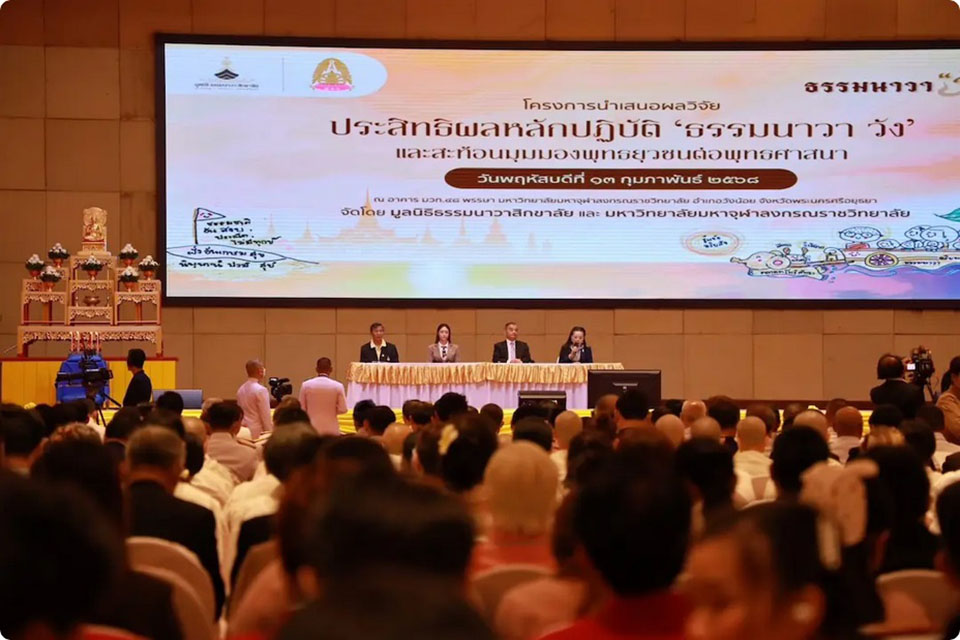
BANGKOK, Thailand – His Majesty the King has extended words of encouragement to participants in a research presentation on the effectiveness of the “Dhammanava Wang” practice. The study examines its role in alleviating suffering and explores Buddhist youth perspectives on Buddhism as a guiding force in preserving religious values. Held on February 13 at Mahachulalongkornrajavidyalaya University in Ayutthaya province, the event brought together members of the Sangha, scholars, military chaplains, and the public.
With Royal Permission, the Committee for the Implementation and Research of the “Dhammanava Wang” curriculum organized the event to present findings on the practice’s effectiveness. Air Chief Marshal Satitpong Sukvimol, Private Secretary to His Majesty the King, represented His Majesty in delivering a Royal Message, underscoring the study’s contribution to Buddhist learning. The research highlights “Dhamma” as a timeless source of wisdom and truth, accessible to those who engage in its study and practice.
The presentation focused on the practical application of Buddhist teachings and their impact on spiritual and personal development. Findings reaffirm the authenticity of “Dhamma” principles and their role in guiding individuals toward a more profound understanding of suffering and its cessation. Discussions also explored ways to preserve and share these teachings to ensure continued access to knowledge that promotes well-being and inner peace. Scholars stressed the importance of further engagement with Buddhist teachings to enhance their relevance in modern society.
His Majesty’s message to the participants recognized their dedication to the study and dissemination of Buddhist wisdom. The Royal Address reiterated the importance of perseverance in maintaining and promoting Buddhism as a source of guidance and stability. The encouragement extended to researchers and practitioners echoes the King’s support for the continued study of “Dhamma” for the benefit of those seeking enlightenment through its teachings.
The event concluded with discussions on expanding awareness of the “Dhammanava Wang” practice and integrating its teachings into broader Buddhist education efforts. The findings are expected to contribute to ongoing Buddhist scholarship and provide insights into the role of “Dhamma” in guiding individuals toward spiritual fulfillment and the alleviation of suffering. (NNT)










